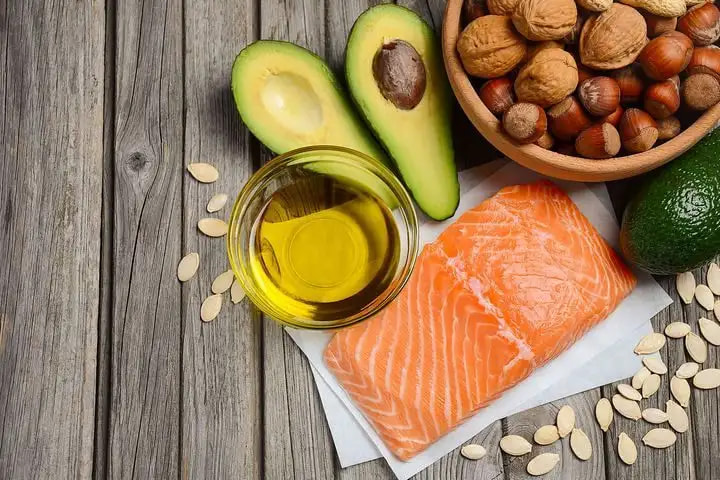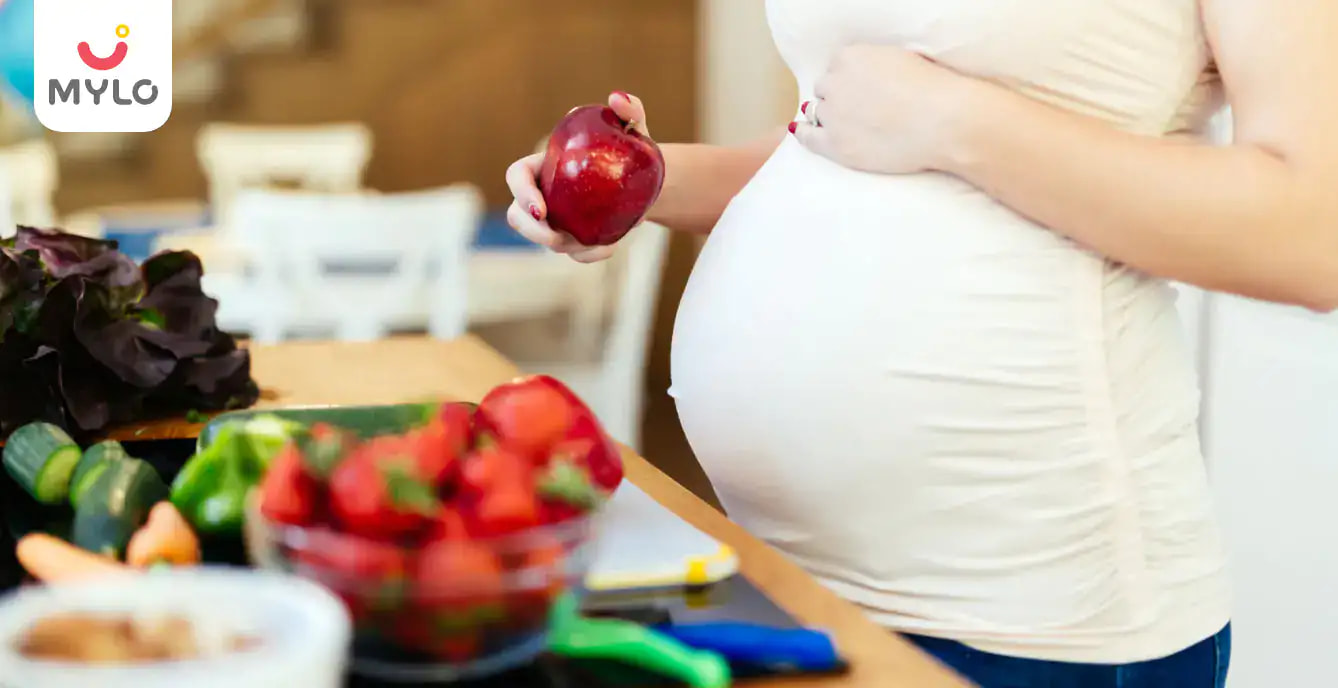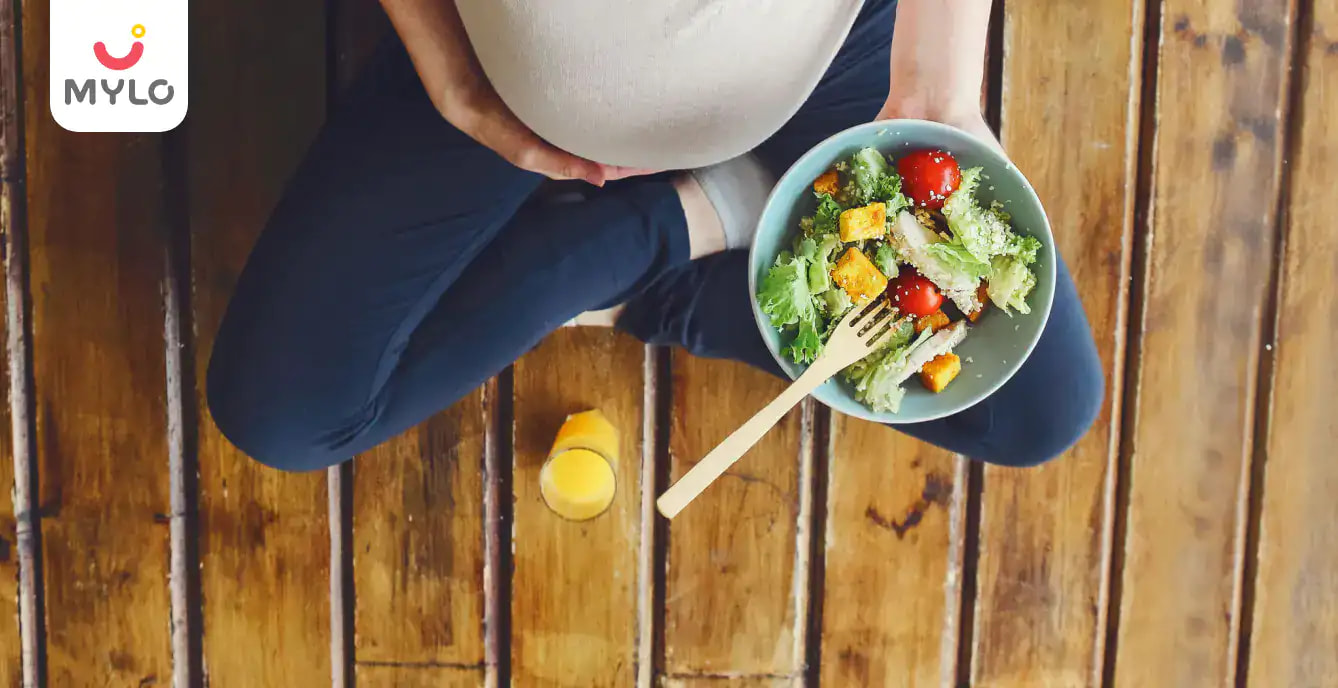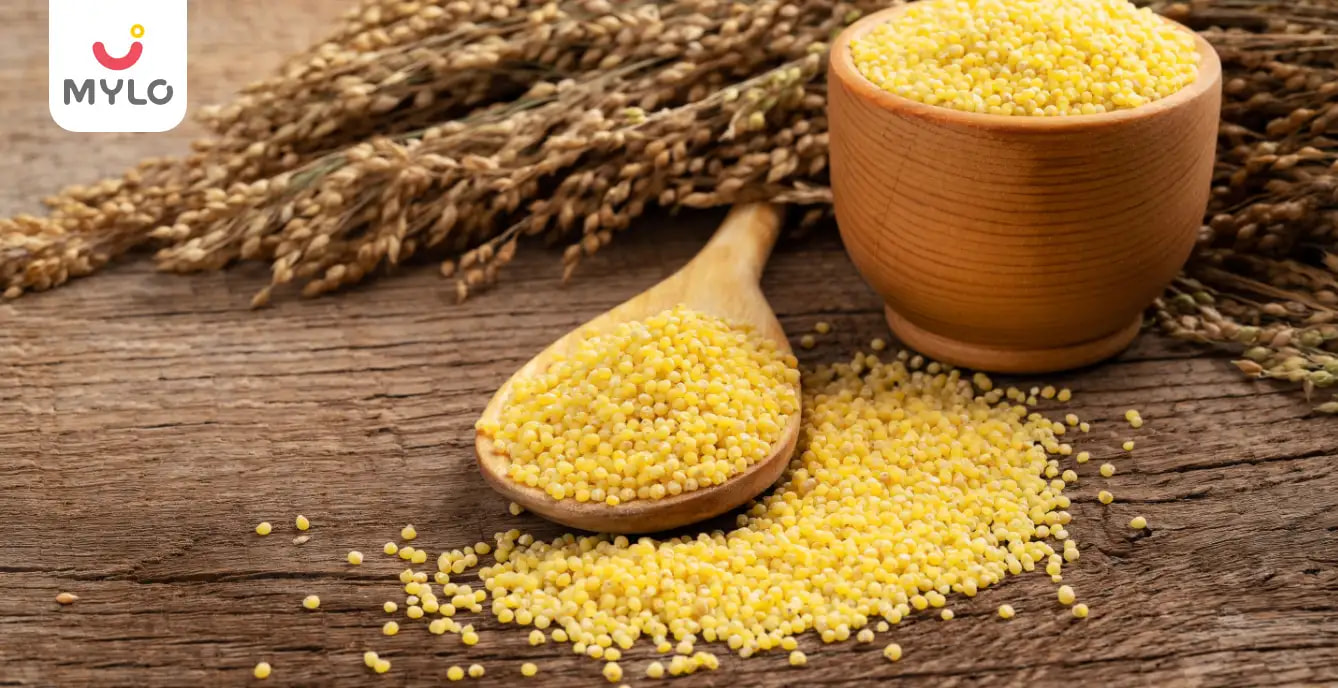Home

Vitamins & Supplements

7 Excellent Sources of Omega-3 Fatty Acids For Expecting Mothers
In this Article

Vitamins & Supplements
7 Excellent Sources of Omega-3 Fatty Acids For Expecting Mothers
Updated on 10 February 2023
A healthy diet consisting of all essential nutrients and vitamins plays a crucial role in the overall development of the growing foetus inside your womb. It also helps you to stay fit and healthy throughout your pregnancy. Therefore, the moment the news of your pregnancy is confirmed; make a diet chart which consists of everything that you may require during this special phase of your life.
One such nutrient which is essential for all expecting mothers is Omega-3 fatty acids. Getting enough omega-3 fatty acids during pregnancy is essential because they help with the brain development of your little one. While it is necessary to consume throughout pregnancy, it’s particularly important during the first and third trimesters because the foetal brain is forming in the first trimester and fine-tuning in the third trimester.
Important Sources of Omega-3 Fatty Acids
Given below are some of the important sources of Omega 3 fatty acids:
1. Anchovies, Sardines, and Herring
These tiny oily fish are all excellent sources of DHA, which is a significant ingredient in brain and retinal tissue. Expecting mothers should include anchovies, sardines and herring in their daily diet.
2. Salmon and Trout
Both salmon and trout are great sources of Omega-3 fatty acids. They are also good alternatives if you have trouble with the fishy smell and flavour of fish, especially while you’re pregnant. Aim to consume at least two servings of fatty fish each week.
3. Omega-3-enriched Eggs
While you’re pregnant, make sure you’re buying organic, omega-3-enriched eggs. They are the ideal source of protein and omega-3 when you’re pregnant, especially during the last trimester when you need about 80 grams of protein per day. Beginning your day with two eggs is a great way to ensure you’re getting enough protein and Omega-3 fatty acids. Just make sure to cook them all the way through to prevent any risk of salmonella or other foodborne illness.
4. Seaweed
If you’re a vegan, vegetarian, or just don’t like to consume fish, you can also get your Omega-3 fatty acids from seaweed. You can consider eating a seaweed salad or vegetarian sushi wrapped in nori (remember no raw fish). Adding kelp to flavour soups is also a great option to add Omega-3 fatty acids to your diet.
5. Omega-3 Supplements
If you're unable to get enough Omega-3 fatty acids through your daily diet, you can also opt for a supplement. Make sure you’re taking a DHA/EPA supplement throughout your pregnancy. It’s best to consume one every day when you take your prenatal vitamins just to ensure you are getting enough.
6. Walnuts
Walnuts are a reliable and easily available source of omega-3 fatty acids. They’re also a good food to snack on between meals. You can also add walnuts to smoothies, salads, trail mix and oatmeal.
7. Flax seeds
Flax seeds are rich in Omega-3 fatty acids. If you are a vegetarian or don't eat fish, flax seeds can be an amazing source of omega-3 fats for you. They are an excellent source of alpha-linolenic acid (ALA), a mostly plant-based omega-3 fatty acid. Flax seeds have around 133 per cent of your daily allowance of ALA.
Closing Thoughts
Now, that you are familiar with multiple sources and benefits of Omega-3 fatty acids, don't forget to include them in your daily diet during pregnancy. Omega-3 fatty acids play an integral role in a baby's brain development, help to lower the risk of premature delivery and birth and may even prevent postpartum depression.



Written by
Ravish Goyal
Official account of Mylo Editor
Read MoreGet baby's diet chart, and growth tips

Related Articles
Related Questions
Influenza and boostrix injection kisiko laga hai kya 8 month pregnancy me and q lagta hai ye plz reply me

Hai.... My last period was in feb 24. I tested in 40 th day morning 3:30 .. That is faint line .. I conculed mylo thz app also.... And I asked tha dr wait for 3 to 5 days ... Im also waiting ... Then I test today 4:15 test is sooooo faint ... And I feel in ma body no pregnancy symptoms. What can I do .

Baby kicks KB Marta hai Plz tell mi

PCOD kya hota hai

How to detect pcos

RECENTLY PUBLISHED ARTICLES
our most recent articles

Labour & Delivery
Epidural: Advantages, Disadvantages & Risks

Dizziness
Dizziness During Pregnancy

Bedrest
Bed Rest During Pregnancy: Does It Really Help?

General Mother
Food Poisoning During Pregnancy: Causes, Symptoms & Treatment

Working Parent
A Working Mom's Guide to Maintaining Balance

General Mother
Vanishing Twin Syndrome: Causes, Symptoms & Treatment
- Oligohydramnios (Low Amniotic Fluid During Pregnancy): Causes, Symptoms & Treatment
- Jaggery in Pregnancy: Benefits & Nutritional Value
- Green Tea During Pregnancy: Benefits, Risks & Safety measures
- Where Can You Buy Female Condoms?
- Is there anything to worry about when your baby passes urine frequently? Here are some warning signs.
- The Do's and Don'ts of how to effectively handle toilet training for your child
- Top 10 Precautions you must take while Celebrating Christmas and New Year During Covid
- Episiotomy Care: Meaning, Reasons & Risks
- 7 Most Popular IVF Myths Busted
- Is It Safe to Have Sex During Pregnancy and After Delivery?
- How to Teach Your Toddler Not to Hit?
- An Expecting Mother's Guide to Vitamins & Supplements in Pregnancy
- Use of Air Conditioners & Coolers for Newborns
- Neonatal Jaundice: Causes, Symptoms & Treatment


AWARDS AND RECOGNITION

Mylo wins Forbes D2C Disruptor award

Mylo wins The Economic Times Promising Brands 2022
AS SEEN IN

- Mylo Care: Effective and science-backed personal care and wellness solutions for a joyful you.
- Mylo Baby: Science-backed, gentle and effective personal care & hygiene range for your little one.
- Mylo Community: Trusted and empathetic community of 10mn+ parents and experts.
Product Categories
baby carrier | baby soap | baby wipes | stretch marks cream | baby cream | baby shampoo | baby massage oil | baby hair oil | stretch marks oil | baby body wash | baby powder | baby lotion | diaper rash cream | newborn diapers | teether | baby kajal | baby diapers | cloth diapers |








